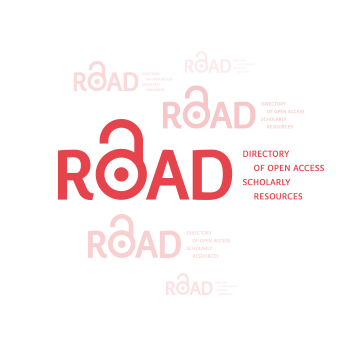Rendimiento Académico en un Programa de Enseñanza de Java Utilizando Software Tutor Basado en ChatGPT: Estudio de Caso
Resumen
La enseñanza de lenguajes de computación es un reto que enfrentan los estudiantes de ingeniería de software a nivel mundial. En este proceso, contar con la ayuda de un tutor que responda preguntas referentes a cómo programar ciertas funcionalidades puede ser fundamental para desarrollar las capacidades de abstracción requeridas. Con este trabajo presentamos el resultado de una investigación que ha pretendido evaluar el impacto del uso de un software tutor basdado en ChatGPT para aprender lenguaje Java. El estudio se llevó a cabo con la participación de 40 estudiantes que se dividieron en dos grupos de 20. El rendimiento académico se analizó utilizando un estadígrafo t-student. El resultado permitió comprobar que la diferencia en el rendimiento académico de ambos grupos fue significativa con un valor p 0.05, y que el uso del software tutor mejoró significativamente el proceso de aprendizaje de los estudiantes.
Descargas
Citas
Al Shloul, T., Mazhar, T., Abbas, Q., Iqbal, M., Ghadi, Y. Y., Shahzad, T., … Hamam, H. (2024). Role of activity-based learning and ChatGPT on students’ performance in education. Computers and Education: Artificial Intelligence, 6, 100219. https://doi.org/https://doi.org/10.1016/j.caeai.2024.100219
Albayati, H. (2024). Investigating undergraduate students’ perceptions and awareness of using ChatGPT as a regular assistance tool: A user acceptance perspective study. COMPUTERS AND EDUCATION: ARTIFICIAL INTELLIGENCE, 100203. https://doi.org /https://doi.org/10.1016/j.caeai.2024.100203
Alberth. (2023). The use of ChatGPT in academic writing: a blessing or a curse in disguise? TEFLIN JOURNAL, 34(2), 337–352. https://doi.org/ 10.15639/teflinjournal.v34i2/337-352
Borges, G. G., & de Souza, R. C. G. (2024). Skills development for software engineers: Systematic literature review. INFORMATION AND SOFTWARE TECHNOLOGY, 168. https://doi.org/10.1016/j.infsof.2023.107395
Bucaioni, A., Ekedahl, H., Helander, V., & Nguyen, P. T. (2024). Programming with ChatGPT: How far can we go? MACHINE LEARNING WITH APPLICATIONS, 100526. https://doi.org/https://doi.org/10.1016/j.mlwa.2024.100526
Chiu, T. K. F. (2024). Future research recommendations for transforming higher education with generative AI. COMPUTERS AND EDUCATION: ARTIFICIAL INTELLIGENCE, 6. https://doi.org/10.1016/j.caeai.2023.100197
De Santis, E., Martino, A., & Rizzi, A. (2024). Human Versus Machine Intelligence: Assessing Natural Language Generation Models Through Complex Systems Theory. IEEE TRANSACTIONS ON PATTERN ANALYSIS AND MACHINE INTELLIGENCE, 46(7), 4812–4829. https://doi.org/10.1109/TPAMI.2024.3358168
Essel, H. B., Vlachopoulos, D., Essuman, A. B., & Amankwa, J. O. (2024). ChatGPT effects on cognitive skills of undergraduate students: Receiving instant responses from AI-based conversational large language models (LLMs). COMPUTERS AND EDUCATION: ARTIFICIAL INTELLIGENCE, 6, 100198. https://doi.org/https://doi.org/10.1016/j. caeai.2023.100198
Fernández Peña, F., Moreno-Guamán, Y., Urrutia-Urrutia, P., Tigse-Bravo, W., León-Mendoza, M. (en prensa). Academic Essays and the Use of Generative AI in Social Science Subjects. 8TH INTERNATIONAL CONFERENCE ON INFORMATION TECHNOLOGY & SYSTEMS, 2025.
Malt, B. C. (2024). Representing the World in Language and Thought. TOPICS IN COGNITIVE SCIENCE, 16(1), 6–24. https://doi.org/10.1111/tops.12719.
Martínez-Olmo, F., González Catalán, F. (2024). Systematic review of trends in the application of artificial intelligence to the field of academic writing in the social sciences. DIGITAL EDUCATION REVIEW, Junio – 45. https://doi.org/10.1344/der.2024.45.37-42.
Pérez-Imaicela, R., Coello-Fiallos, D., & Fernández-Peña, F.. (en prensa). Academic reinforcement software tutor based on ChatGPT. An approach evaluated for software programming courses. MULTIDISCIPLINARY INTERNATIONAL CONFERENCE ON RESEARCH APPLIED TO DEFENSE AND SECURITY, 2024.
Rejeb, A., Rejeb, K., Appolloni, A., Treiblmaier, H., & Iranmanesh, M. (2024). Exploring the impact of ChatGPT on education: A web mining and machine learning approach. THE INTERNATIONAL JOURNAL OF MANAGEMENT EDUCATION, 22(1), 100932. https://doi.org/https://doi.org/10.1016/j.ijme.2024.100932
Shahzad, M.F., Xu, S. & Javed, I. ChatGPT awareness, acceptance, and adoption in higher education: the role of trust as a cornerstone. INTERNATIONAL JOURNAL OF EDUCATIONAL TECHNOLOGY IN HIGHER EDUCATION, 21 (46) (2024). https://doi.org/ 10.1186/s41239-024-00478-x
Sun, D., Looi, C.-K., Li, Y., Zhu, C., Zhu, C., & Cheng, M. (2024). Block-based versus text-based programming: a comparison of learners’ programming behaviors, computational thinking skills and attitudes toward programming. ETR&D-EDUCATIONAL TECHNOLOGY RESEARCH AND DEVELOPMENT, 72(2), 1067–1089. https://doi.org/10.1007/s11423-023-10328-8.
Yeo, S., Ma, Y.-S., Kim, S. C., Jun, H., & Kim, T. (2024). Framework for evaluating code generation ability of large language models. ETRI JOURNAL, 46(1), 106–117. https://doi.org/10.4218/etrij.2023-0357.
Yu, H. (2024). The application and challenges of ChatGPT in educational transformation: New demands for teachers’ roles. HELIYON, e24289. https://doi.org /https://doi.org/10.1016/j.heliyon. 2024.e24289
Zhai, C., Wibowo, S. & Li, L.D. The effects of over-reliance on AI dialogue systems on students' cognitive abilities: a systematic review. SMART LEARNING
Derechos de autor 2024 Félix Fernández Peña, Marlena León Mendoza

Esta obra está bajo licencia internacional Creative Commons Reconocimiento 4.0.













.png)




















.png)
1.png)


